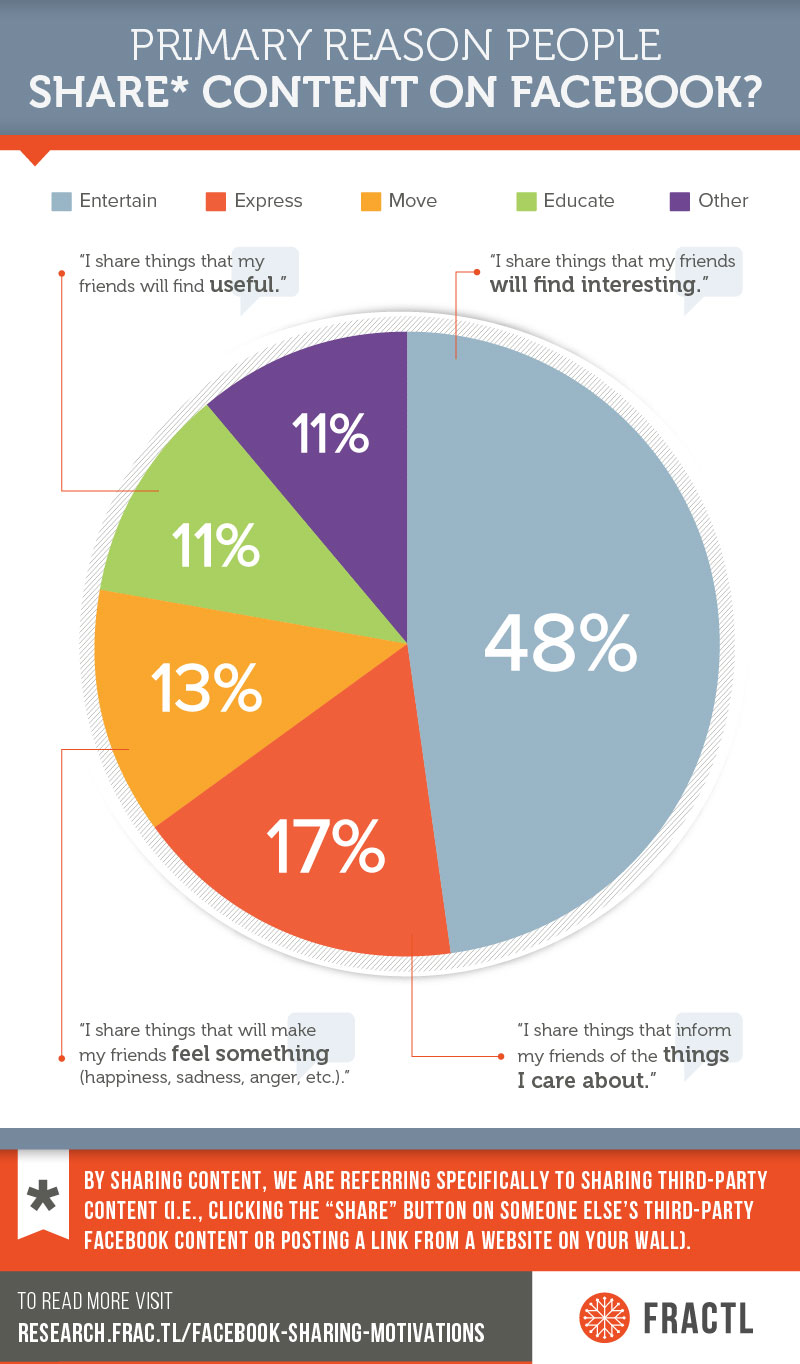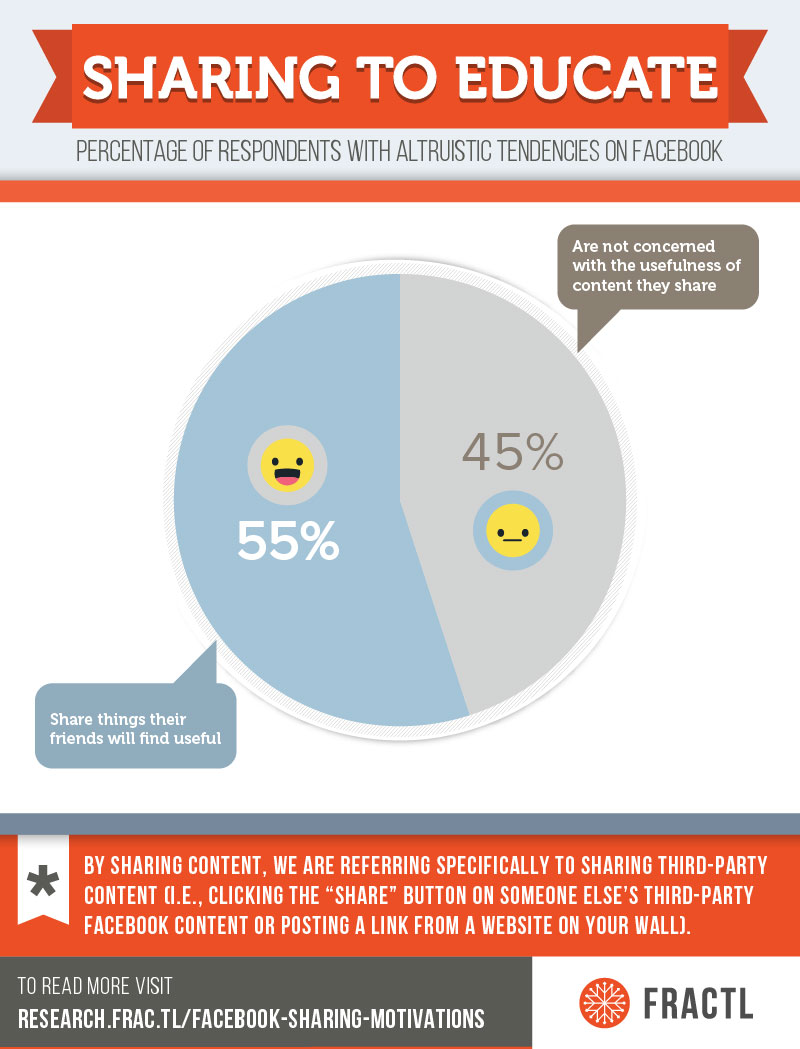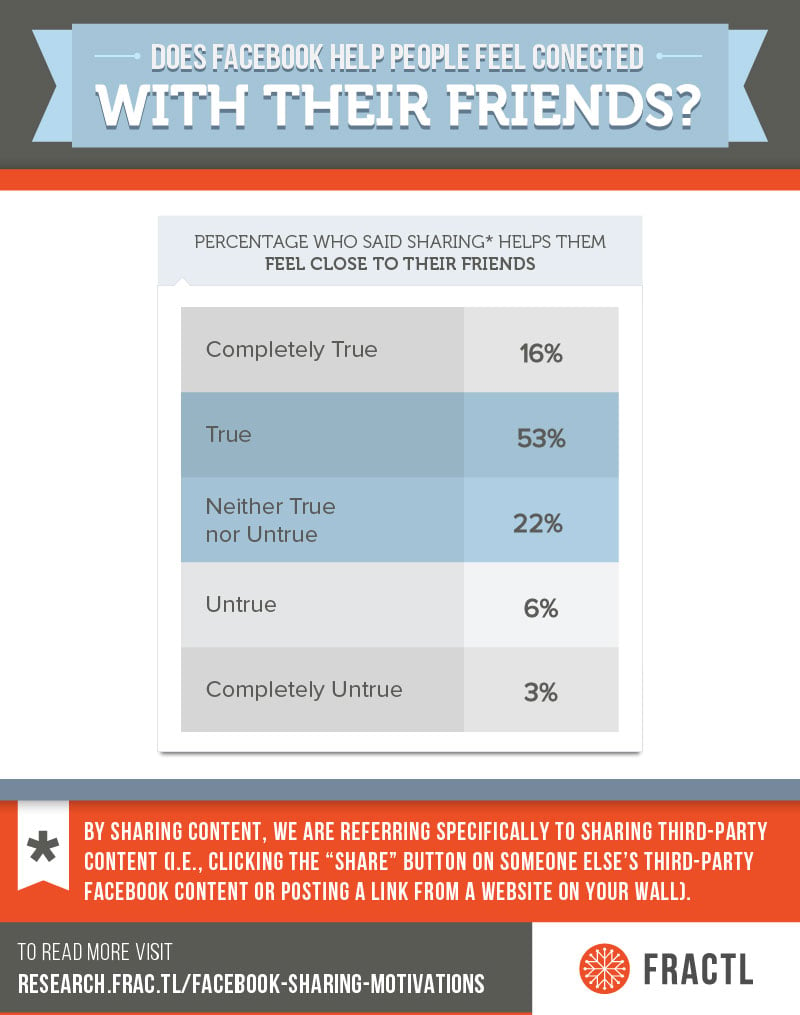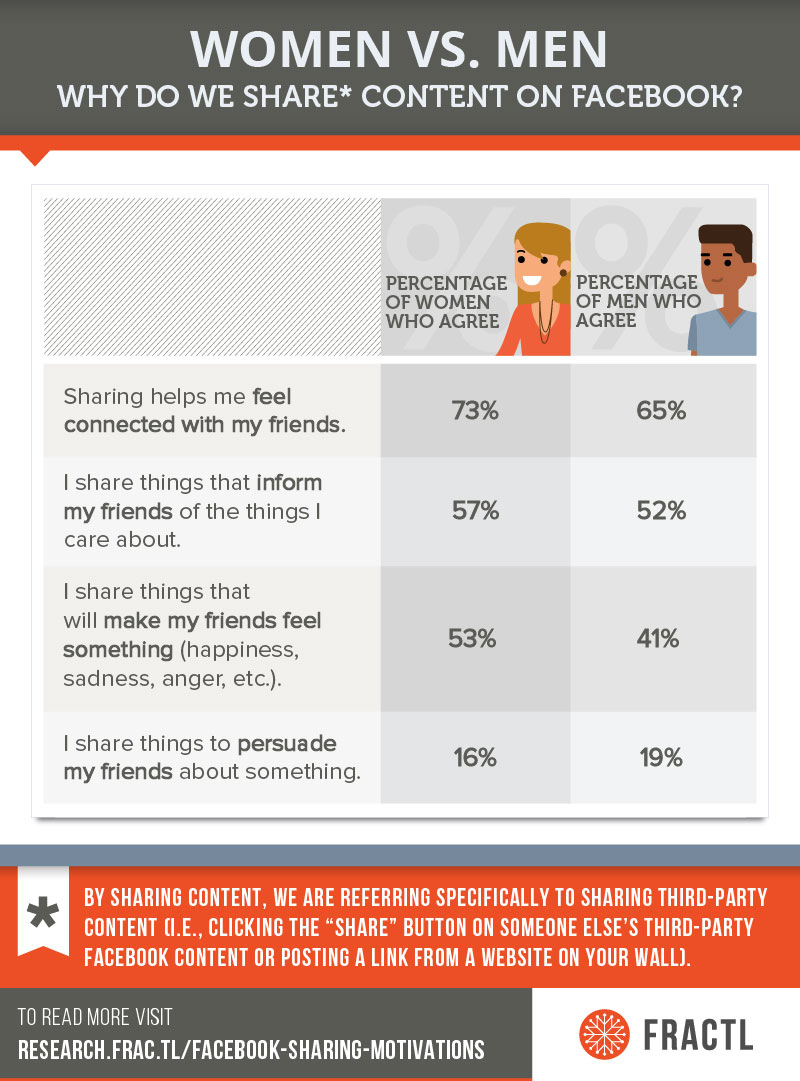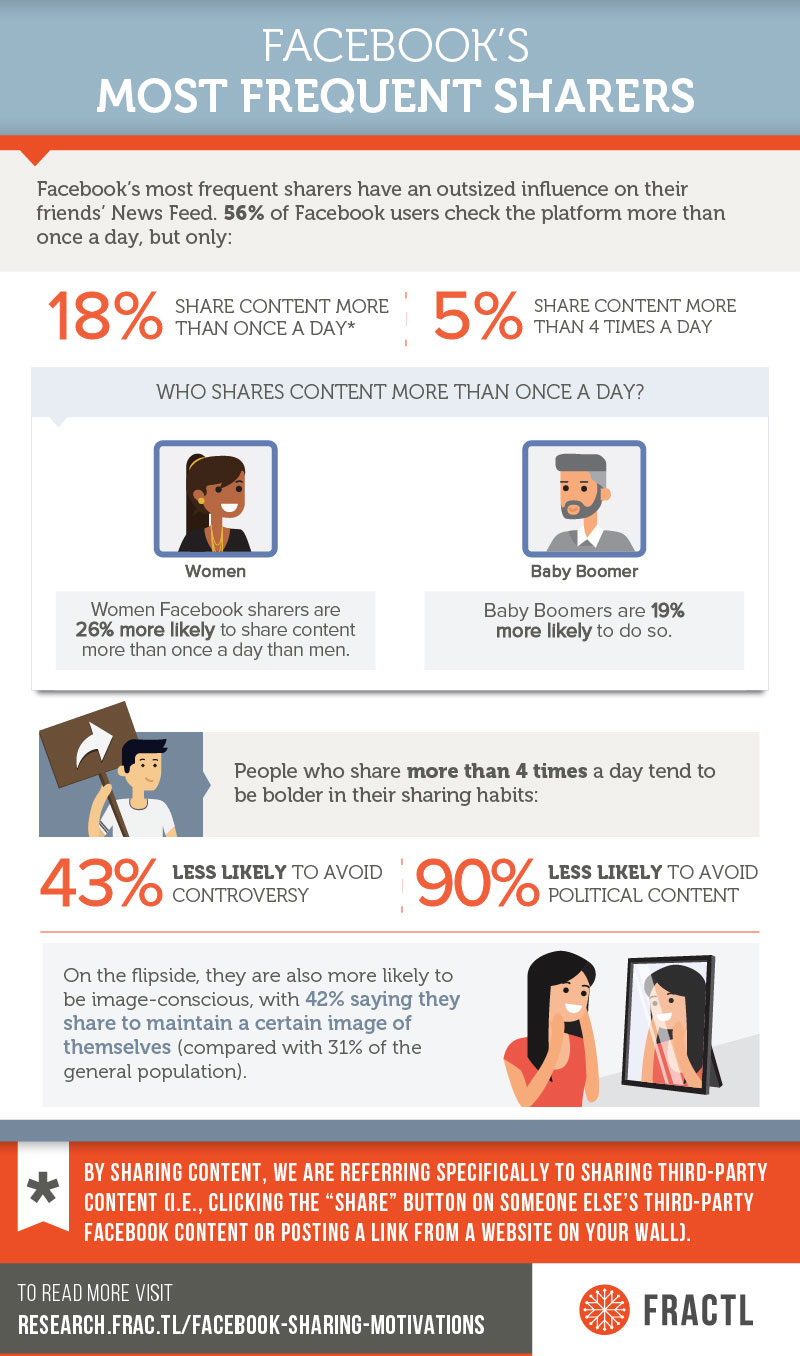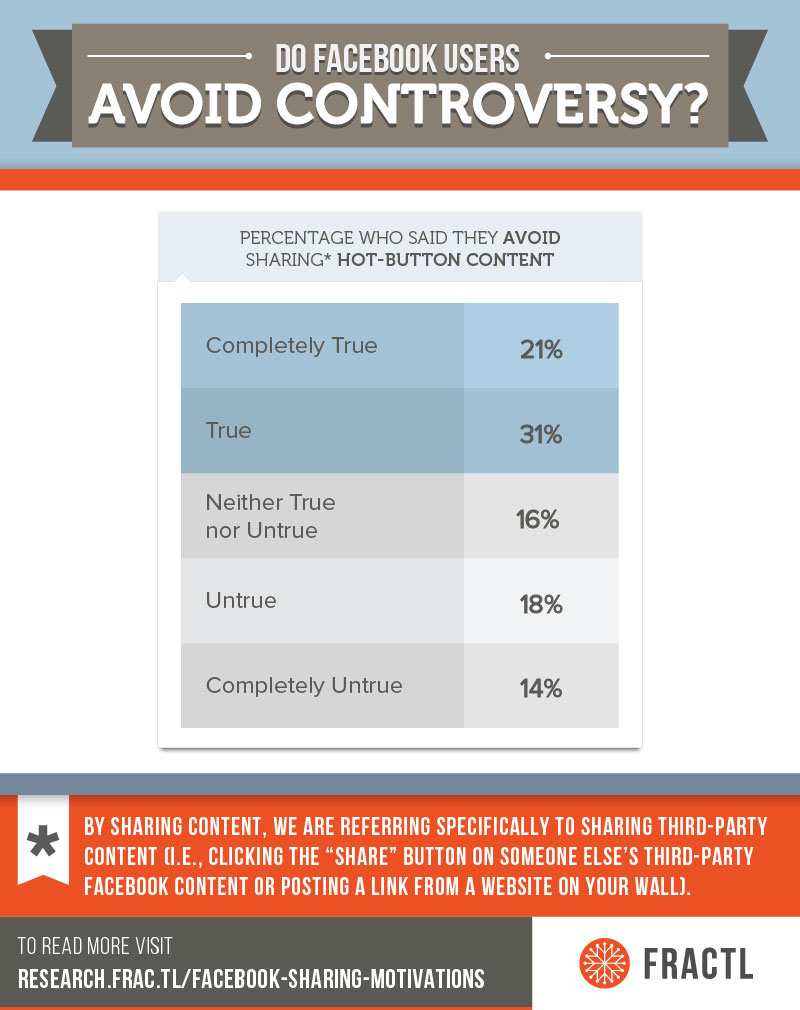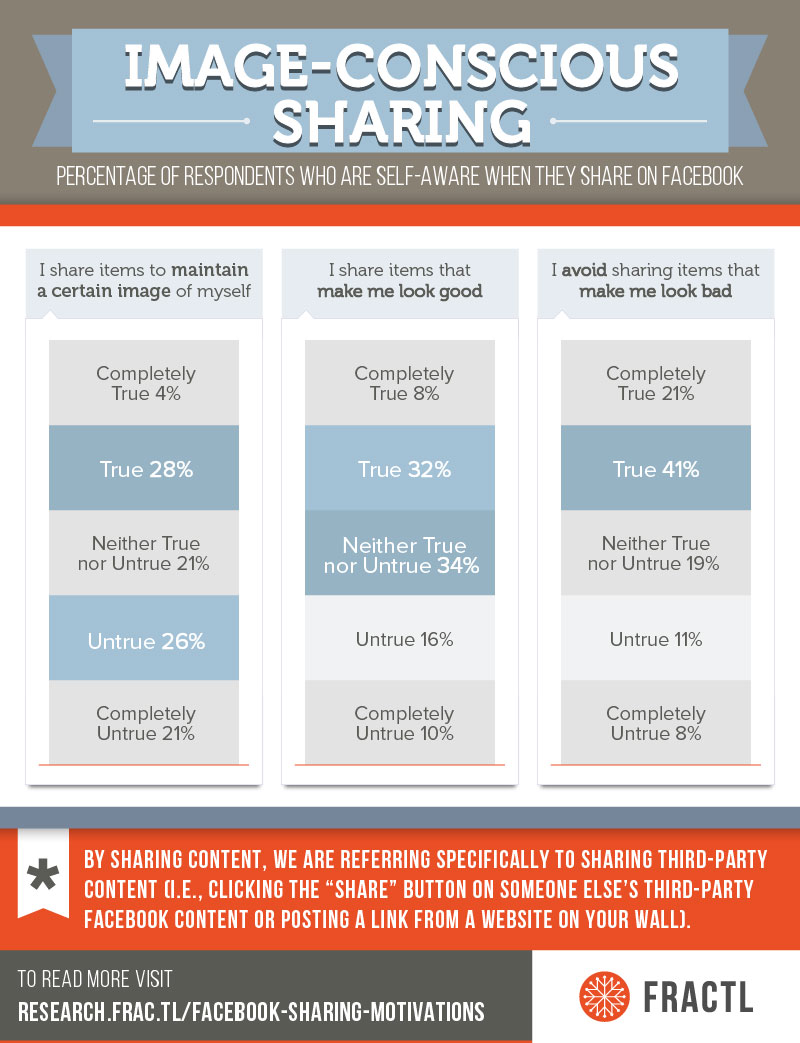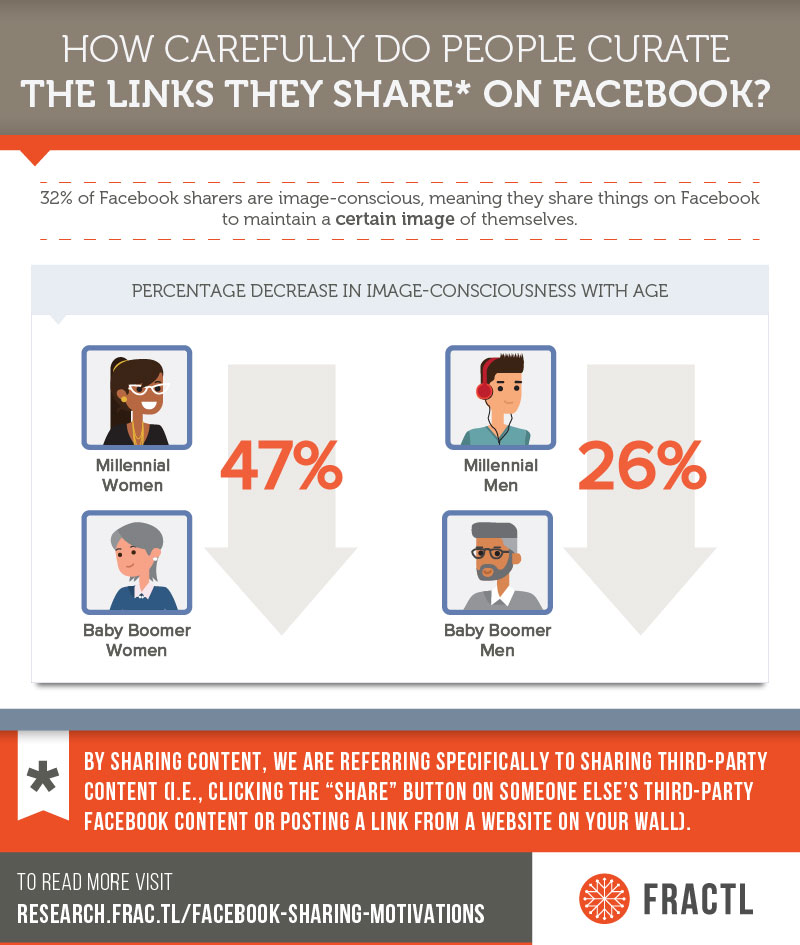Since Facebook created the share button (a feature you may wish your puppy-loving aunt never discovered), our News Feeds have become populated with content that takes us outside of Facebook. It exposes us to new content and brands. The type of content users choose to share on Facebook varies, but the reasons we share content aren’t all that different.
Fractl conducted a survey of 2,000 people and asked them about what they share on Facebook and why. (By sharing content, we are referring specifically to sharing third-party content – i.e., clicking the share button on someone else’s third-party Facebook content or posting a link from a website on your wall.)
We looked at the motivations for these frequent sharers (people who post content more than once a day) as well as for the rest of the sharers on Facebook. We found pronounced differences between genders as well as across Facebook’s frequent sharers and more casual users.
Why We Share on Facebook
When survey respondents were asked about their primary motivation for sharing content on Facebook, the most popular reason (at 48 percent) was to entertain their friends. A slightly smaller group of respondents (17 percent) wanted to express the issues they cared about. In third place is evoking an emotional response (13 percent). In fourth: providing useful information (11 percent).
Although only 11 percent of us share on Facebook primarily to educate, overall, we are still interested in sharing useful items.
And although only 3 percent of us share on Facebook primarily to feel connected with our friends, sharing helps many of us feel connected.
Facebook Sharing Motivations: Women vs. Men
Women are 13 percent more likely to share content on Facebook to elicit an emotional response from their friends. This is especially pronounced as women get older, with 60 percent women over 50 who actively share on Facebook agreeing to the statement, “I share things that will make my friends feel something (happiness, sadness, anger, etc.).” Men are slightly more likely to share something to persuade their friends of their viewpoint.
Frequent Sharers
Dr. Marisa Schnapp, a psychologist with 20 years of experience, has worked with patients of all ages whose daily lives have been impacted by social media. She has encountered two distinct types of Facebook users: those who post frequently and “another group of people who look, but don’t post. They are more shy, more introverted.” Our research supports her observation. Fifty-six percent of Facebook users log on more than once a day, but only 18 percent share more than once a day. Facebook’s consistent sharers tend to be older and female. They are also distinct from more casual users in several other ways: Facebook’s most frequent sharers tend to be bolder but simultaneously more image-conscious.
Overall, Facebook users tend to shy away from rocking the boat, with 52 percent agreeing that they avoid sharing content that is controversial.
The Mindful Sharer
Our Facebook profile is a reflection of ourselves. Thirty-one percent of respondents stated that they shared content on Facebook to maintain a certain image of themselves. Those users who had more friends (500-plus) are more cautious about what they post. They are 7 percent more likely to share content that maintains a certain image of themselves and are 9 percent more likely to share content that makes them look good.
Overall, we become less self-conscious as we age. For women, this transition is more drastic than it is for men. In fact, as we get older, we are 9 percent more likely to agree that sharing helps us feel connected with our friends.
Methodology
In April 2016, Fractl, a leading content marketing agency, surveyed 2,000 people about sharing content on Facebook. Everyone who participated in the survey was a Facebook user, and 91 percent shared content on Facebook regularly.
Did this study pique your interest? Read more of our research about the type of content that people share on Facebook and how users are employing Facebook’s Reactions.

